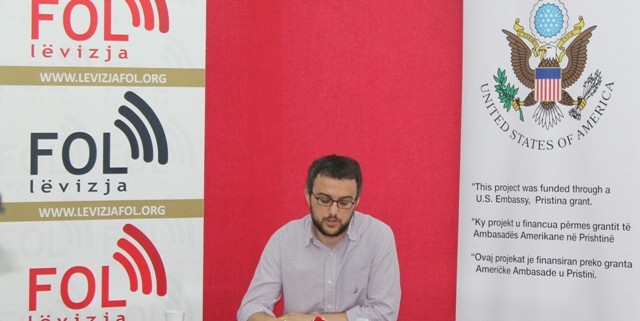Public officials do not report corruption
Prishtina, 17th June – Today FOL Movement held a press conference presenting the report: “Officials do not report corruption: The level of knowledge and experience of public officials about the Law on Protection of Informers”.
Armend Mazreku a researcher at FOL Movement said that “Like all laws on prevention and fighting corruption, the Law on Protection of Informers suffers from several deficiencies and legal gaps.” Further, he added that “besides the aspects related mainly to the normative aspects of this law, the findings of this research argue the poor and insufficient level of public officials regarding denunciation of offenses.”
According to the research of FOL, it results that the Law on Protection of Informers contains many gaps and deficiencies. Among them are: the wrong name and with a negative connotation of the Law on Protection of Informers; generalized scope of the Law and non-specification in the field of criminal offenses against official duty as provided by Kosovo Criminal Code; uncertainty about which instance is responsible for receiving information, and the impunity of people or authorities responsible when they reveal the identity of the reporters of corruption.
Moreover, according to the findings of this research, only 73.6% of officials who hold different public functions are informed about the existence of the Law on Protection of Informers, while 26.4% of them are not at all informed about the existence or non-existence of the law. It is even worse about the content of the law. Only 15% of public officials in central and local level turn out to be informed of the contents of this law, 60% somewhat, 21% little and 4% have no knowledge at all. According to this research only 36% of public officials have reported cases of corruption, while 73% of them have ‘closed their eyes’ of what they have seen.
Furthermore, the research has shown the lack of supervising officials for irregularities who should have been appointed by public institutions, the fear of officials for punishment by their superiors, and the lack of public discussion about the level of implementation of the Law, by parliamentarians and representatives of civil society organizations.
In addition to these important aspects, the research has also identified the advantages and weaknesses of Kosovo legislation compared to the countries in the region. While the advantages of Kosovo legislation according to this research is this specific law and protection this law guarantee when the identity of the officials is revealed, on the other hand regarding other aspects mainly related to the scope of the law, the bodies responsible for receiving information, punishment of the responsible people or authorities who reveal the identity of those who report abusive practices, countries in the region are significantly better regarding these issues.



